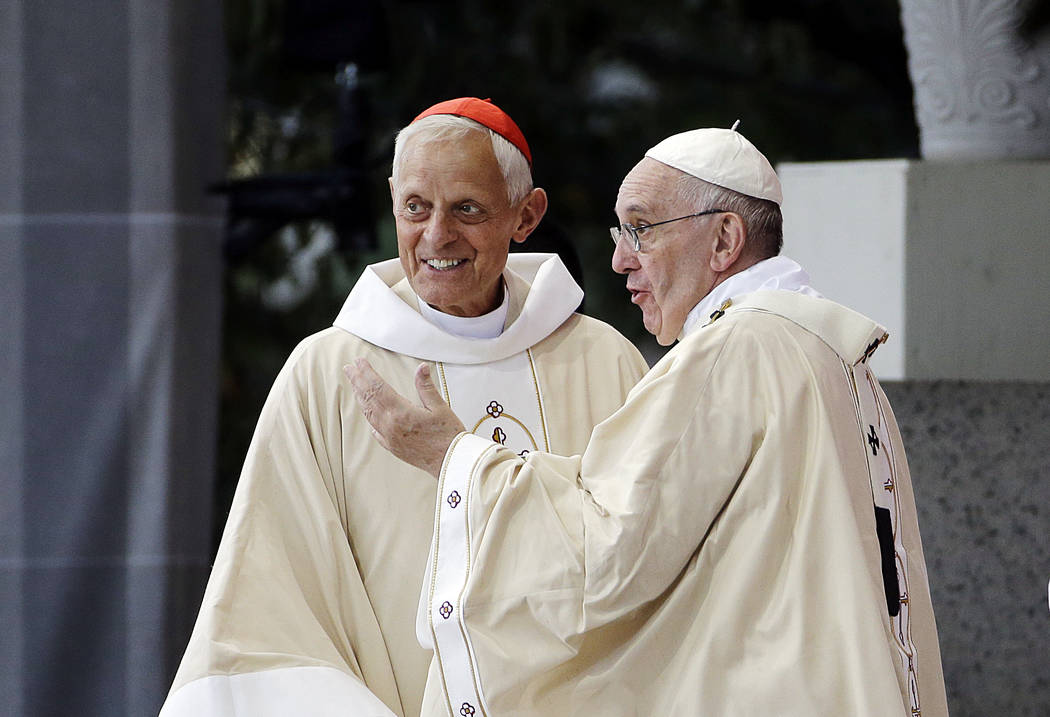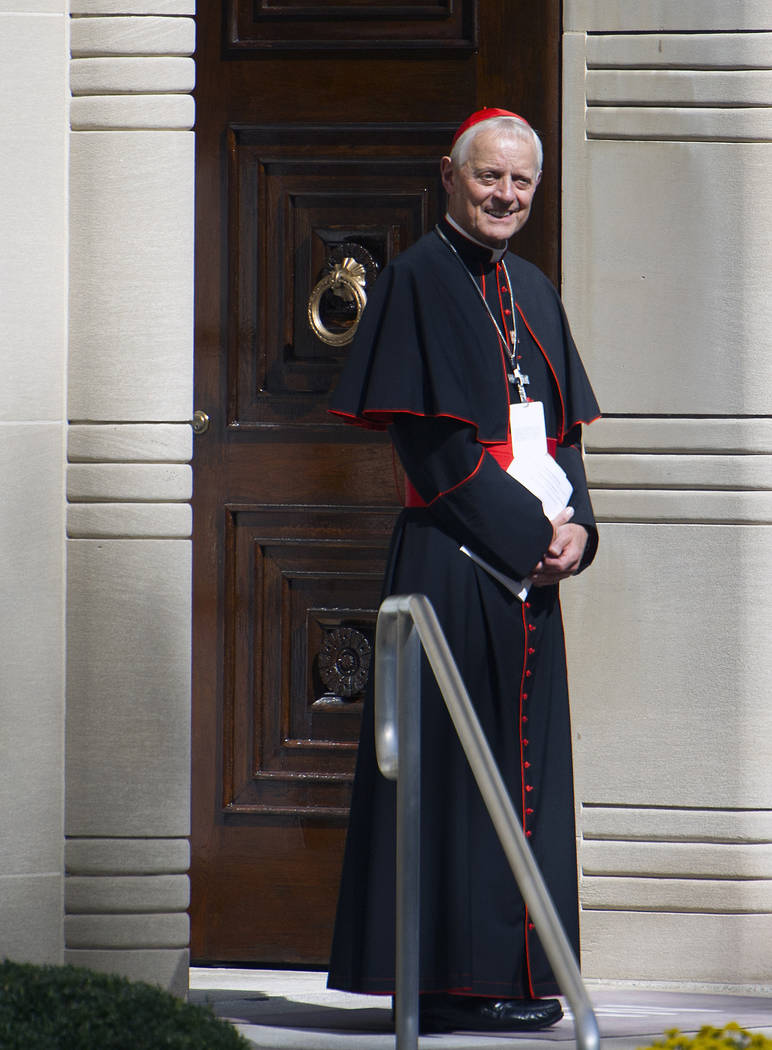Pope accepts resignation of cardinal over sex abuse scandal


VATICAN CITY — Pope Francis accepted the resignation Friday of Washington Cardinal Donald Wuerl after he became entangled in two major sexual abuse and cover-up scandals and lost the support of many in his flock.
But in a letter released by Wuerl’s office, Francis asked him to stay on temporarily and suggested Wuerl had unfairly become a scapegoat, having made some “mistakes” in handling sex abuse cases, but not having covered them up.
With the resignation, Wuerl becomes the most prominent head to roll in the scandal roiling the Catholic Church after his predecessor as Washington archbishop, Theodore McCarrick, was forced to resign as cardinal over allegations he sexually abused at least two minors and adult seminarians.
A grand jury report issued in August on rampant sex abuse in six Pennsylvania dioceses accused Wuerl of helping to protect some child-molesting priests while he was bishop of Pittsburgh from 1988 to 2006. Simultaneously, Wuerl faced widespread skepticism over his insistence that he knew nothing about years of alleged sexual misconduct by McCarrick.
A Vatican statement Friday said Francis had accepted Wuerl’s resignation, but named no replacement; in his letter, the pope asked him to stay on in a temporary capacity until a new archbishop is found and implied he was accepting the resignation reluctantly.
Wuerl, who turns 78 in November, initially downplayed the scandal, insisted on his own good record, but then progressively came to the conclusion that he could no longer lead the archdiocese.
“The Holy Father’s decision to provide new leadership to the archdiocese can allow all of the faithful, clergy, religious and lay, to focus on healing and the future,” Wuerl said in a statement Friday. “Once again for any past errors in judgment I apologize and ask for pardon.”
In his letter accepting the resignation, Francis said he recognized that, in asking to retire, Wuerl had put the interests and unity of his flock ahead of his own ambitions.
“You have sufficient elements to justify your actions and distinguish between what it means to cover up crimes or not to deal with problems, and to commit some mistakes,” Francis wrote. “However, your nobility has led you not to choose this way of defense. Of this I am proud and thank you.”
Francis’ praise alarmed survivors’ advocates, who said it was evidence of the clerical culture Francis himself denounces in which the church hierarchy protects its own.
Terrence McKiernan, president of the online abuse database BishopAccountability, said it showed that for Francis, “Cardinal Wuerl is more important than the children he put in harm’s way. Until Pope Francis reverses this emphasis on coddling the hierarchy at the expense of children, the Catholic Church will never emerge from this crisis.”
Wuerl had submitted his resignation to Francis nearly three years ago, when he turned 75, the normal retirement age for bishops. But Francis kept him on, as popes tend to do with able-bodied bishops who share their pastoral priorities.
But Wuerl made a personal appeal to Francis last month to accept the resignation, following the fallout of the McCarrick scandal and outrage over the Pennsylvania grand jury report that has led to a crisis in confidence in the church hierarchy.
Wuerl was also named prominently in the 11-page denunciation of the McCarrick cover-up that was penned by the Vatican’s former ambassador to the U.S., Archbishop Carlo Maria Vigano, who accused a long line of U.S. and Vatican churchmen of turning a blind eye to McCarrick’s penchant for sleeping with seminarians.
Wuerl has not been charged with any wrongdoing but was named numerous times in the Pennsylvania report, which details instances in which he allowed priests accused of misconduct to be reassigned or reinstated.












